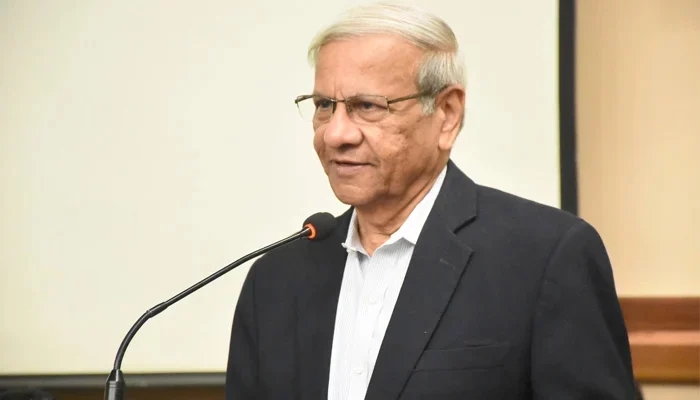ISLAMABAD: Renowned economist Dr. Kaiser Bengali resigned from three key government committees focused on expenditure reduction and institutional rightsizing. Bengali’s resignation comes amid concerns about Pakistan’s economic stability, which he described as being “on a ventilator” due to escalating debts and approaching destruction.
Bengali, who had been serving on committees established by the Pakistan Muslim League-Nawaz (PML-N) led coalition government to address the economic crisis, submitted his resignation to Finance Minister Senator Muhammad Aurangzeb and Cabinet Division Secretary Kamran Ali Afzal. His departure aligns with the government’s ongoing efforts to manage the economic downturn through austerity, rightsizing, and the privatization of underperforming state-owned enterprises. The government is also seeking a new bailout package from the International Monetary Fund (IMF).
In his resignation statement, Bengali commended the government for its efforts to cut expenditures and described the committees’ work as vital. He noted that the committees had proposed shutting down 17 divisions and 50 departments after reviewing 70 government institutions and 17 corporations. However, Bengali criticized the government’s actions, claiming that it was protecting junior officers (Grade 1 to 16) rather than making cuts among higher-ranking officials (Grade 17 to 22), which he argued could save Rs30 billion annually.
Bengali expressed skepticism about the government’s recent decisions regarding the restructuring and privatization of various state entities, including utility stores, the Public Works Department (PWD), and Pakistan International Airlines (PIA). He highlighted that the recent federal cabinet meeting discussed merging 82 government bodies into 40, based on the committees’ recommendations.
The economist, with a master’s degree from Boston University and a PhD from the University of Karachi, warned of dire economic consequences due to mounting debt. He pointed out the severe impact on the populace, who are struggling to manage their finances. Bengali also criticized the government’s economic policies and raised concerns about the IMF’s reluctance to approve loans.
The IMF’s Executive Board is set to meet up to September 4, but sources have indicated that Pakistan is not on the agenda, raising concerns about securing necessary financial support. Despite this, the government remains optimistic about obtaining a $7 billion bailout package from the IMF next month, as Finance Minister Aurangzeb expressed confidence in securing approval.
Pakistan is also in discussions with Saudi Arabia, the UAE, and China to meet the financial requirements of the IMF program, following a recent trip by Finance Minister Aurangzeb to China for debt reprofiling in the energy sector. The outcome of these negotiations, along with IMF support, will be crucial for addressing Pakistan’s economic challenges.


